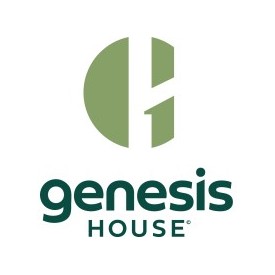Finishing rehab doesn’t mean the journey is over; recovery is a process, not an end destination. At the same time, completing an inpatient rehab program is a major achievement. But you may wonder: what comes next?
Transitioning from the structured environment of residential treatment back to everyday life can feel overwhelming, even scary. And this is where step-down programs can bridge the gap.
Instead of jumping straight from a structured environment to managing everything on your own, a rehab step-down program provides a smoother, more intentional transition, protecting your progress while helping you build confidence and skills for lasting recovery.
Just as someone recovering from major surgery wouldn’t immediately start running marathons, expecting someone fresh out of rehab to navigate every challenge without support can set them up for unnecessary struggle. So, in this article, we break down what step-down programs are, how they work, and why they’re an important piece for lasting recovery.
What Is a Rehab Step-Down Program?
Step-down addiction treatment is a structured approach that gradually reduces the intensity of care as you progress in your recovery. Essentially, you transition through progressively less intensive levels of support.
Step-down programs are a vital part of the continuum of care in addiction treatment. This continuum recognizes that recovery needs change over time.
For example, in early recovery, you might need the intensive structure and medical supervision of inpatient care. As you stabilize and develop coping skills, you may be ready for more freedom, but not necessarily complete independence. The continuum typically flows from medical detox and inpatient treatment through partial hospitalization, intensive outpatient programs, standard outpatient care, and eventually to ongoing recovery support and aftercare. In fact, inpatient vs outpatient rehab can be seen as a continuum of care all in itself, with many individuals transitioning initially from inpatient to outpatient rehab programs.
Ultimately, the primary goal of a step-down approach is to help you build independence gradually and ensure you never lose access to the support you need.
Why Step-Down Programs Are Important in Recovery
The transition out of inpatient treatment is one of the most vulnerable phases in the recovery journey. Without continued support, many people struggle when suddenly confronted with triggers, stressors, and daily responsibilities. As such, the sharp contrast between the stability of inpatient treatment and the unpredictability of everyday life can be overwhelming, leaving even the most motivated individuals at risk for relapse.
However, continuing care rehab programs, such as the step-down program, provide the continued structure needed to maintain the progress built during inpatient care. Regular therapy sessions keep you engaged in processing emotions and strengthening coping strategies. Group meetings offer ongoing peer support and accountability. And structured schedules continue to help you establish healthy routines.
But step-down programs go beyond relapse prevention; they also help you manage the emotional and social shifts that come with integrating back into daily life, such as rebuilding relationships, adjusting to work, managing daily responsibilities, and finding joy without substances.
And if you’re worried about what comes after rehab, Genesis House can guide you through each step of the process. You don’t need to do it alone, even after your rehab program is complete.
Levels of Care in a Step-Down Model
The step-down model follows a carefully designed progression through different levels of care in addiction treatment, each offering the right balance of support and independence for your current stage of recovery. This levels of care model typically includes:
- Inpatient/Residential Treatment: This stage provides the highest level of care with 24/7 supervision and support. You live at the facility, receiving intensive individual and group therapy, medical monitoring, and structured daily activities. This immersive environment removes you from triggers and allows you time to completely focus on healing and building a foundation for recovery.
- Partial Hospitalization Programs (PHP): This type of program represents the first major step toward independence. You often will spend 5-7 hours per day at the treatment facility, typically five days a week, participating in intensive therapy, educational sessions, and skill-building activities. However, returning home in the evenings and on weekends allows you to practice your recovery skills in real-world settings.
- Intensive Outpatient Programs (IOP): IOP further reduces treatment hours to about 9-15 hours per week, usually spread across 3-4 days. You continue receiving group and individual therapy while managing more of your daily responsibilities, such as work, school, or family obligations. In many ways, IOP provides enough structure to keep you accountable and supported while giving you room to rebuild your life.
- Outpatient Care and Aftercare: At this stage, you’re offered ongoing support through weekly individual therapy sessions, support group meetings, and alumni programs. This level maintains your connection to professional help and the recovery community while you navigate life with full independence.
What to Expect in a Step-Down Program
Step-down programs maintain the core therapeutic elements that make treatment effective while adapting to your increasing independence. As such, you’ll continue participating in individual therapy to address personal challenges, group sessions that provide peer connection and shared learning, and often family therapy to rebuild relationships and establish healthy dynamics at home.
Beyond traditional therapy, expect practical life skills training and relapse prevention education. You’ll learn to identify triggers, develop coping strategies, manage stress, and handle high-risk situations. Peer support also remains central—connecting with others in recovery provides accountability, encouragement, and proof that lasting recovery is possible.
Most step-down programs also offer flexible scheduling designed to accommodate work, school, or family responsibilities. Evening and weekend options allow you to maintain employment or education while prioritizing recovery, helping you rebuild your life without sacrificing the support you need.
How Genesis House Supports Clients Through Step-Down Care
At Genesis House, we understand that lasting recovery requires ongoing support tailored to your evolving needs. Our comprehensive step-down programs offer multiple levels of care, ensuring you receive the right support at the right time as you progress through your recovery journey.
We recognize that recovery isn’t one-size-fits-all. This is why our experienced team works with you and your family to create a personalized step-down plan that honors your unique circumstances, goals, and pace of progress. From PHP through outpatient care, we’re committed to providing the structured support you need while fostering the independence you’re working toward.
Call Genesis House today to learn more about step-down programs and find the right level of care for your recovery journey.






